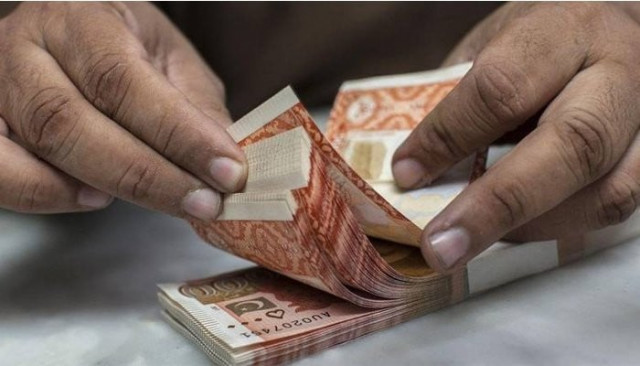Rupee likely to be ‘weakened amid rising trade balance'
Weaker rupee may be among factors that pressure central bank to raise borrowing costs, says Deutsche Bank's official

Pakistan’s currency could be weakened as the surge in energy and commodities prices deepens the nation’s current account deficit, according to Deutsche Bank AG’s country head, referring to the broadest measure of trade, a report published in Bloomberg stated.
“That’s a key concern for the economy and for the business community,” the bank’s chief country officer Syed Kamran Zaidi said in an interview. “That is obviously something which the banks are also cautious about.”
The report stated that Pakistan saw its energy bill rise to $13 billion in the first eight months of the year that started in July, more than double the same period of the last fiscal, according to government data.
Read more: Rupee slides below 180 against dollar
"Costs could increase further as oil prices have since surged above $100 a barrel amid supply concerns following Russia’s invasion of Ukraine," it added.
A weaker rupee may be among the factors that pressure the central bank to raise borrowing costs, Kamran added, estimating the benchmark target rate to increase between 50 and 100 basis points in the next few meetings, after being left unchanged for the previous two.
“The market has already incorporated this change as can be seen by secondary market yields of Treasury Bills and Pakistan Investment Bonds” that reflect short- and long-tenor instruments, he said.
According to Bloomberg, Pakistan’s short-term bond yields have increased by at least 150 basis points in the past month, according to central bank data. Meanwhile, Pakistan’s rupee slipped for a seventh day to a record low 181.73 per dollar on Tuesday.
Also read: Rupee’s dip continues in inter-bank
The current account last month was a $545 million deficit, narrower than the $2.5 billion record shortfall in January, but still more than 16-times larger than the same month last year, according to central bank data.
“Pakistan will be in good shape longer term, partly on rising exports, and that many multinational firms are bullish on the country and a few rank Pakistan among their top five destinations. At least two of those companies are planning new factories in Pakistan, Kamran further said.
The story originally appeared in Bloomberg.



1733130350-0/Untitled-design-(76)1733130350-0-208x130.webp)















COMMENTS
Comments are moderated and generally will be posted if they are on-topic and not abusive.
For more information, please see our Comments FAQ